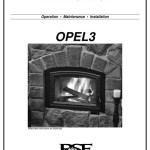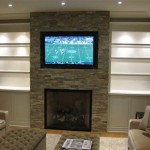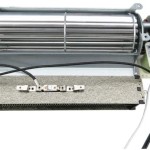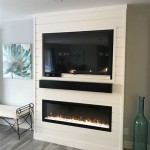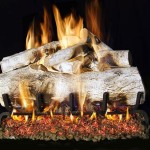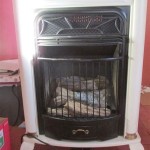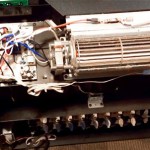Gas Fireplace Smells When Not In Use: Identifying and Addressing the Issue
A gas fireplace is a welcome addition to any home, providing warmth and ambiance during colder months. However, a disconcerting issue can arise when the fireplace isn't in use – an unpleasant odor emanating from the unit. This smell can range from a faint, musty scent to a stronger, chemical-like odor. Thankfully, understanding the potential causes of this smell can help you identify and address the issue effectively.
Potential Causes of Gas Fireplace Smells
Several factors can contribute to a gas fireplace emitting an odor when not in use. The most common culprits are:
1. Pilot Light Issues
A pilot light that is not properly adjusted or is malfunctioning can produce a sulfurous smell. The pilot light provides a continuous flame that ignites the main gas flow when you turn on the fireplace. If the pilot light is too low or if it's not burning with a healthy, blue flame, it can release unburnt gas, resulting in an unpleasant smell.
2. Combustion Chamber and Venting Problems
The combustion chamber is the heart of the gas fireplace, where the gas burns to create heat. Over time, dust, debris, and soot can accumulate in the combustion chamber and venting system. This buildup can lead to a smoky, burnt odor. The venting system, responsible for carrying away combustion byproducts, can become obstructed, causing the smell to linger in the room.
3. Leaking Gas Lines
While a rare occurrence, a gas leak can be a serious safety hazard and a cause of unpleasant smells. If you suspect a gas leak, you should immediately evacuate your home and contact a qualified gas technician. Signs of a gas leak include a hissing sound, a rotten egg smell (usually associated with added odorants to make gas detectable), and the presence of bubbles in water near a gas line.
Troubleshooting and Solutions
Once you've identified the potential source of the smell, you can take steps to rectify the issue. Here are some common solutions based on the identified causes:
1. Pilot Light Adjustments
If the pilot light is flickering or producing a yellow flame, it may need adjustment. Consult your fireplace's manual or contact a professional to adjust the pilot light flame height. Ensure the flame is a steady, bright blue color.
2. Cleaning the Fireplace
Regularly cleaning your fireplace is essential for preventing odor buildup. Carefully inspect the combustion chamber and venting system for any debris or soot buildup. You can use a soft brush and a vacuum cleaner with a crevice attachment for cleaning. If the buildup is extensive or difficult to remove, you may need to contact a professional fireplace cleaner.
3. Inspecting and Clearing Vents
Ensure the venting system is clear of any blockages. Examine the vent pipe for any obstructions, such as bird nests, leaves, or debris. If you notice any blockages, carefully remove them. You should also check the vent termination point on your roof to ensure it's clear and unobstructed.
4. Addressing Gas Leaks
If you suspect a gas leak, immediately evacuate your home and call a qualified gas technician. It's crucial to address gas leaks promptly, as they can pose a serious safety hazard.
Preventive Measures
Taking proactive steps can help prevent gas fireplace smells. Here are some preventative measures to consider:
1. Regular Maintenance
Schedule regular inspections and maintenance for your gas fireplace. A qualified technician can check the pilot light, clean the combustion chamber, and inspect the venting system to ensure everything is functioning properly. This preventative measure can help identify and address issues before they become a problem.
2. Proper Ventilation
Ensure adequate ventilation in the room where your fireplace is located. A properly functioning vent system is crucial for carrying away combustion byproducts and preventing the buildup of odors. Consider using a fan to circulate air in the room, especially after using the fireplace.
By understanding the potential causes of gas fireplace smells and taking appropriate action, you can enjoy the warmth and ambiance of your fireplace without the unpleasant olfactory interruptions. If you're unable to identify or address the issue yourself, don't hesitate to contact a qualified gas technician for professional assistance.

Here S Why Your Gas Fireplace Stinks Full Service Chimney

Here S Why Your Gas Fireplace Stinks Full Service Chimney

Why Your Gas Fireplace Stinks Chimney Experts

Vent Free Fireplace Odor

Why Does My Gas Fireplace Smell Dreifuss Fireplaces

How To Get Rid Of Fireplace Smell Vertical Chimney Care

Vent Free Fireplace Odor

How To Get A Smoke Smell Out Of Fireplace Home Repair Maintenance

Why Does My Gas Fireplace Smell Like When I Turn It On

Here S Why Your Gas Fireplace Stinks Full Service Chimney

